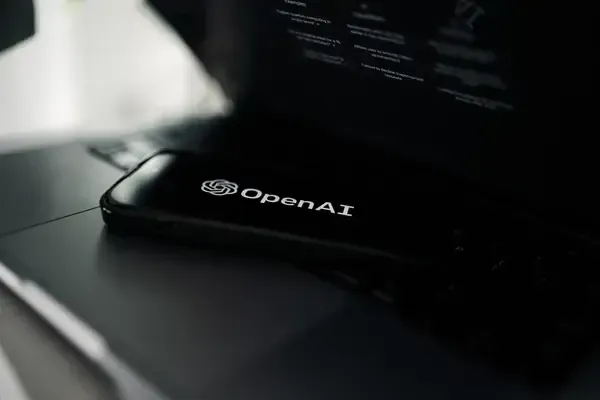Tech Insights & Cyber News
Stay Ahead of the Game
Stay Up-to-Date with the Latest Cyber News and Insights
Stay informed and ahead of the curve with our Cyber Insights page, where you can find thought-provoking blogs and articles on the latest developments in the world of cybersecurity. From new threats to innovative solutions, our expert authors bring you up-to-date information and analysis to help you safeguard your organization in an ever-changing landscape.
Insights & Cyber News

ChatGPT Hijacked by Hackers: Malware and Phishing Services Sold on the Dark Web
Protecting your online security is a top priority in today's digital landscape.With cybercriminals constantly developing new methods to attack vulnerable systems, it's more important than ever to have effective malware protection. Unfortunately, some hackers are now offering a service that bypasses ChatGPT restrictions on malware, which can put your online security at risk.
At HartStrand, we understand the importance of keeping your systems safe from harm. That's why we offer a comprehensive range of security solutions designed to protect against the latest cyber threats. Our team of experts can help you to safeguard your online assets and stay one step ahead of the hackers.
What is malware, and why is it dangerous?
Malware is any malicious software designed to damage, disrupt, or gain unauthorized access to a computer system. This can include viruses, trojans, ransomware, spyware, and adware. Malware can be introduced to a system through a variety of methods, such as email attachments, malicious websites, or software downloads.
Once malware is installed on a system, it can cause significant damage. This may include stealing sensitive data, disrupting system operations, or even rendering a computer unusable. In some cases, malware can be used to gain access to a computer network, allowing hackers to steal information from multiple systems.
How do hackers bypass ChatGPT restrictions on malware?
ChatGPT is a sophisticated language model that is designed to respond to natural language queries. It is constantly being updated to improve its accuracy and effectiveness. However, hackers have found ways to bypass the security measures that are in place.
One method used by hackers is to disguise malware as legitimate software. They may create fake websites or use social engineering techniques to convince users to download and install the malware. In other cases, hackers may exploit vulnerabilities in software to gain access to a system.
Another method used by hackers is to use a proxy service to bypass ChatGPT restrictions. This service allows the hacker to route their traffic through a remote server, making it more difficult for ChatGPT to detect and block the malicious activity.
Recently, hackers have discovered a way to circumvent ChatGPT's restrictions by using OpenAI's text-davinci-003 API, allowing them to sell services that create malware and phishing emails on underground crime forums. The API doesn't have the same anti-abuse measures as ChatGPT, so it permits the creation of malicious content. The service, which combines the API and the Telegram messaging app, offers 20 free queries before charging users $5.50 for every 100 queries. Check Point Research found that the service can create phishing emails and scripts that steal PDF documents from an infected computer and sends them to an attacker via FTP. OpenAI has not yet responded to the research findings.

Malware generated with the Telegram bot.
Check Point Research

Malware generated with the Telegram bot.
Check Point Research

A phish generated with the Telegram bot.
Check Point Research

A bash script for bypassing ChatGPT restrictions.
Check Point Research
How can you protect your system from malware?
The best way to protect your system from malware is to use a comprehensive security solution. This should include anti-virus and anti-malware software, a firewall, and regular software updates. In addition, you should follow best practices for online security, such as not clicking on suspicious links, using strong passwords, and avoiding public Wi-Fi networks.
It's also important to be vigilant and to stay up to date on the latest threats. Cybercriminals are constantly developing new methods to attack vulnerable systems, so it's important to be aware of the latest threats and to take steps to protect yourself.
At HartStrand, we offer a range of security solutions designed to protect against the latest threats. Our team of experts can help you to identify vulnerabilities in your system and take steps to safeguard your online assets. We stay up to date on the latest threats and can help you to stay one step ahead of the hackers.
In conclusion, protecting your online security is more important than ever. With hackers now offering a service that bypasses ChatGPT restrictions on malware, it's crucial to have effective security solutions in place. At HartStrand, we understand the importance of staying one step ahead of the hackers. Contact us today to learn more about how we can help you to protect your online assets.
We are available to assist
24 x 7 x 365.
Call Us at (833) 447-0672
Industries
Banking & Financial Services
Communications
Consumer Products
Utilities
Healthcare
Information Services
Insurance
Manufacturing
Oil & Gas
Media & Entertainment
Retail
Technology & Engineering
Transportation & Logistics
Travel & Hospitality
Engineering
Expertise
Consulting
Solutions On Demand
Privacy Policy | Cookie Policy | Terms and Conditions | UEID: KW1FKQ199HY1 | CAGE: 9C6V1
Copyright (c) 2026 HartStrand ® All Rights Reserved.


